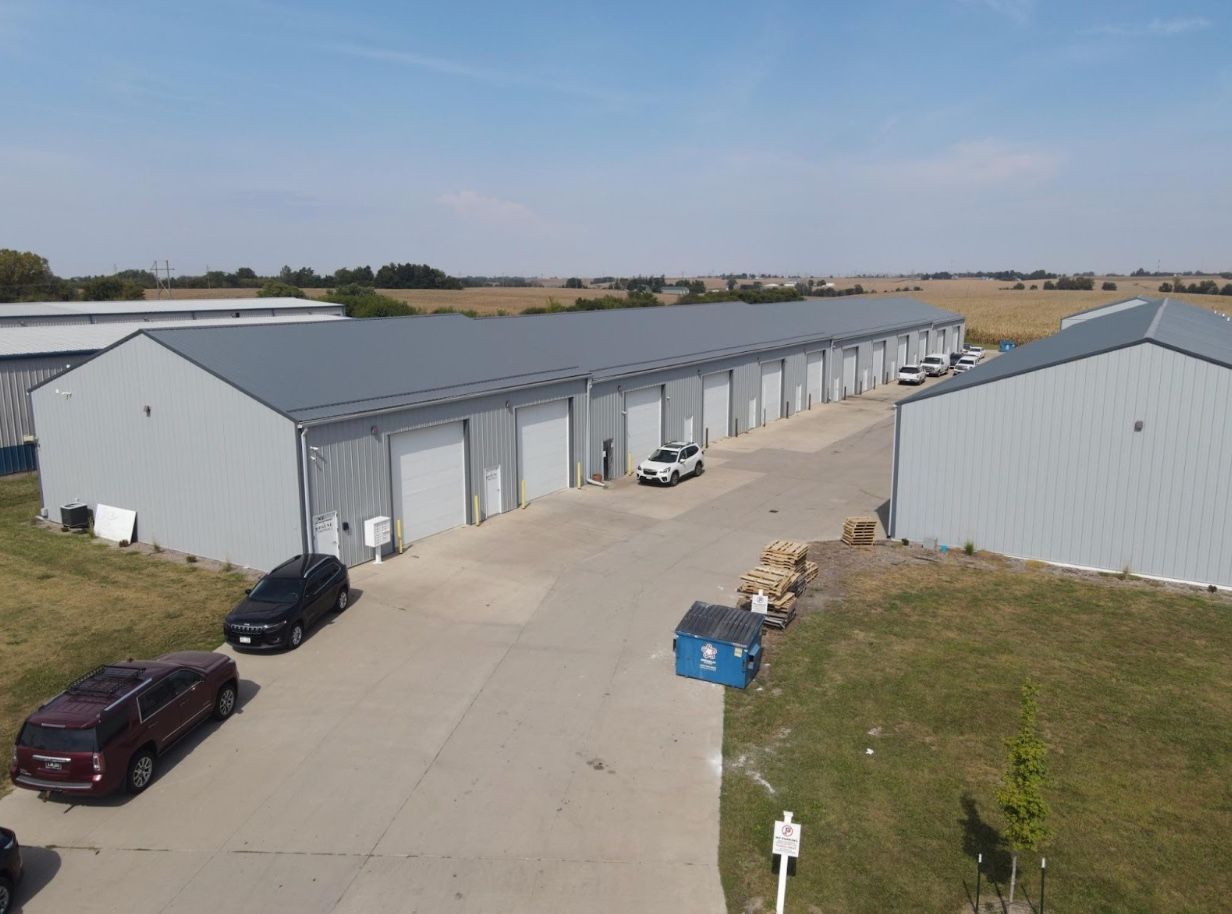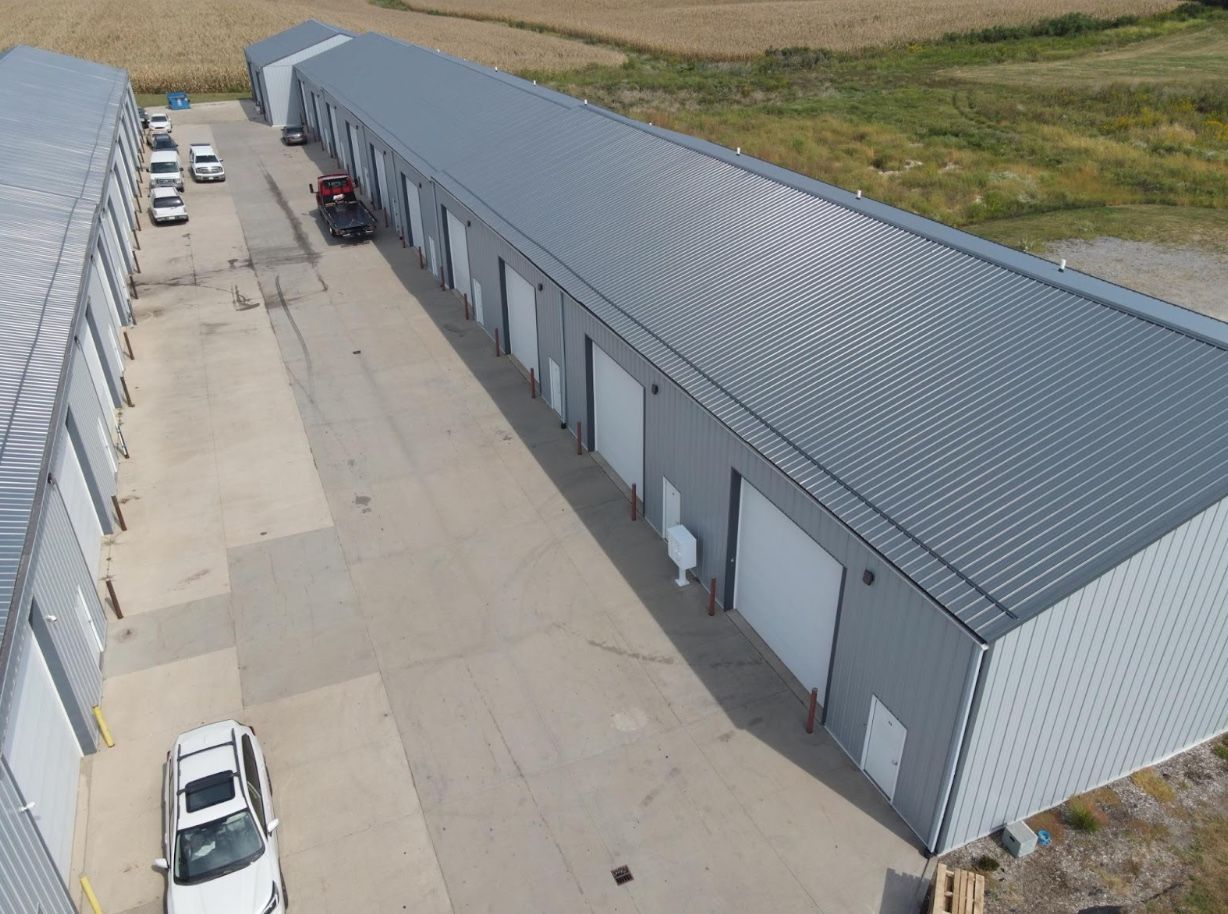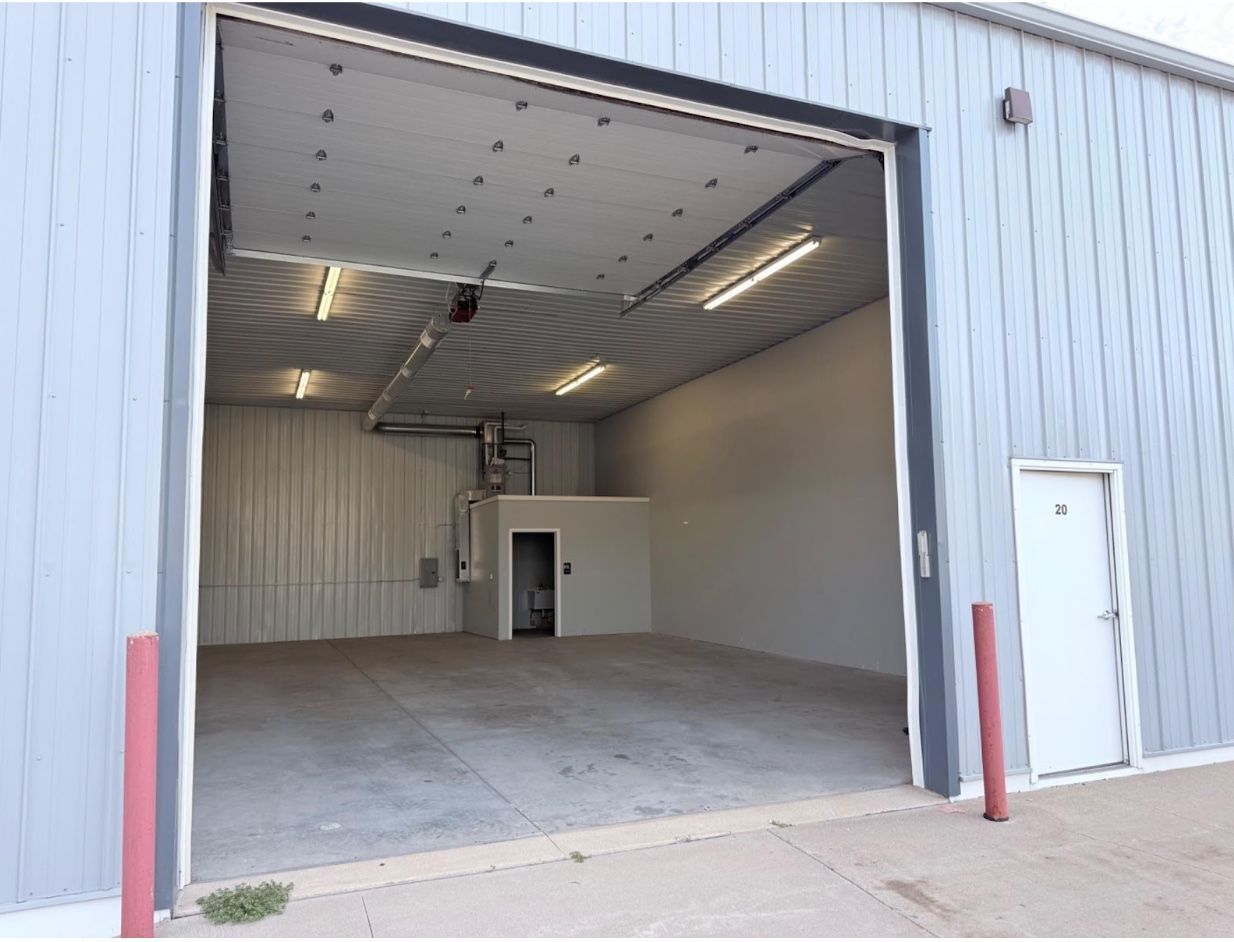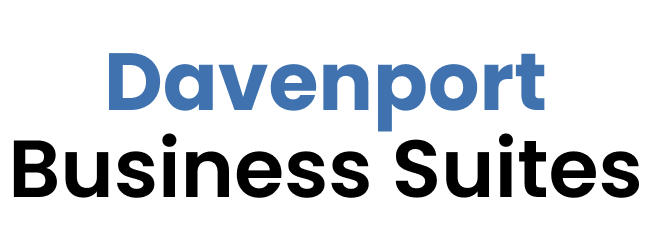Flex Industrial Space Costs in the Quad Cities: What You'll Pay
October 6, 2025
If you're searching for flexible commercial space in the Quad Cities, one of your first questions is likely: How much does flex industrial space cost in Davenport and the surrounding area? The answer depends on the size of the space, the amenities included, and the specific lease structure you choose.
Whether you're a growing manufacturer, a distribution company expanding into the region, or a business owner needing adaptable warehouse space, understanding the cost structure upfront helps you plan effectively.
At Davenport Business Suites, you'll find a variety of flexible options designed to fit both short-term and long-term business needs. Let's break down typical costs, what affects pricing, and how to find the best value for flex industrial space in the Quad Cities.
Average Cost of Flex Industrial Space in the Quad Cities
Flex industrial lease rates in the Quad Cities are generally competitive compared to larger Midwestern metros like Chicago, Des Moines, or the Twin Cities. The region's affordability extends to commercial real estate, making it an attractive option for businesses looking to control overhead costs.
In the Davenport area, flex industrial space typically runs around $10.50 per square foot plus NNN (net, net, net) expenses, or approximately $13.00 per square foot gross. This represents the area average and reflects the Quad Cities' business-friendly pricing structure.
Rates can vary based on location within the metro, building quality, and included amenities, but businesses consistently find the Quad Cities offers strong value compared to comparable markets.
Factors That Affect Flex Industrial Pricing in the Quad Cities
Pricing can vary depending on several key factors:
Location: Spaces located near major transportation corridors like I-80, I-74, or I-280 may command slightly higher rates due to logistics advantages. Facilities in Davenport, Bettendorf, or along the riverfront industrial parks typically reflect this premium.
Building features: Modern facilities with higher ceilings, dock doors, upgraded HVAC systems, or office build-outs will be priced accordingly. Older industrial buildings may offer lower rates but require tenant improvements.
Lease structure: Triple net (NNN) leases separate base rent from operating expenses like taxes, insurance, and maintenance. Gross leases include these costs in one rate. Understanding which structure works best for your business is important for accurate budgeting.
Space configuration: Whether you need primarily warehouse space, a combination of office and warehouse, or specialized features like climate control affects pricing. Multi-tenant flex facilities often provide the most cost-effective solution for businesses that don't need an entire building.
Lease term: Longer-term commitments may secure more favorable rates, while month-to-month or short-term leases offer flexibility at a premium.
Understanding Flex Space Lease Structures
Unlike residential or retail leases, commercial flex industrial space typically uses one of two pricing models:
NNN (Triple Net) Leases: You pay a base rate (around $10.50/sq ft in the Quad Cities) plus your proportionate share of property taxes, insurance, and common area maintenance. This structure provides transparency but requires budgeting for variable costs.
Gross Leases: A single rate (around $13.00/sq ft locally) covers rent and operating expenses. This simplifies budgeting and reduces administrative overhead for tenants.
Both structures are common in the Quad Cities market. The best choice depends on your business's financial planning preferences and operational needs.
What Size Flex Space Do You Need?
Determining the right amount of square footage helps you estimate costs accurately:
1,000–2,500 sq ft: Suitable for small manufacturers, service businesses with equipment storage, or startups needing combined office and warehouse space.
2,500–5,000 sq ft: Works well for growing distribution operations, light manufacturing, or businesses transitioning from smaller facilities.
5,000–10,000+ sq ft: Accommodates established operations with significant inventory, multiple work zones, or companies consolidating from multiple locations.
Most flex industrial facilities in Davenport
offer various unit sizes within multi-tenant buildings, allowing businesses to scale up or down as needs change without relocating entirely.
Additional Costs to Consider
Beyond base rent, factor in:
Utilities: Electricity, gas, water, and internet typically aren't included in lease rates
Insurance: Commercial general liability and property insurance for your business operations
Improvements: Any tenant improvements or modifications needed for your specific use
Security deposits: Usually equivalent to one or two months' rent
Who Uses Flex Industrial Space in the Quad Cities?
Flexible commercial space appeals to a diverse range of businesses:
- Small to mid-sized manufacturers and light industrial operations
- Distribution and logistics companies serving regional markets
- Construction contractors needing equipment and material storage
- Professional services firms requiring warehouse components
- E-commerce businesses managing inventory and fulfillment
- Startups and growing companies seeking scalable space solutions
Quad Cities Commercial Real Estate vs. Other Markets
Compared to larger metros, the Quad Cities remains highly competitive for industrial real estate. In Chicago's outer suburbs, comparable flex space can run $15–$20+ per square foot. Des Moines averages $11–$14 per square foot, while smaller Iowa markets may be slightly lower but lack the infrastructure advantages the Quad Cities provides.
This means Quad Cities businesses benefit not only from lower operating costs overall but also from advantageous commercial real estate rates while maintaining excellent transportation access and a skilled workforce.
Tips for Finding the Right Flex Industrial Space
A few strategies can help you maximize value:
- Define your must-haves: Determine which features are essential (dock doors, office space, ceiling height) versus nice-to-have
- Consider location strategically: Proximity to I-80 or suppliers may justify slightly higher rent through logistics savings
- Evaluate lease flexibility: Can you expand within the building? What are renewal terms?
- Tour multiple properties: Compare building conditions, management responsiveness, and tenant mix
- Understand total occupancy costs: Look beyond base rent to utilities, NNN expenses, and operational needs
FAQs About Flex Industrial Space Costs in the Quad Cities
What's the average cost per square foot in Davenport?
Approximately $10.50/sq ft plus NNN expenses, or around $13.00/sq ft gross, represents the area average.
Are rates negotiable?
Lease terms, improvements, and longer commitments may provide negotiation opportunities. Market conditions also play a role.
What's included in NNN charges?
Typically property taxes, building insurance, and common area maintenance. Your share is usually based on your percentage of total building square footage.
How long are typical lease terms?
Commercial flex leases commonly run 1-4 years, though shorter and longer terms are available depending on the property and tenant needs.
Final Thoughts: Getting the Best Value on Quad Cities Flex Space
Finding the right flex industrial space in the Quad Cities comes down to balancing cost with your operational requirements. Location, size, amenities, and lease structure all factor into total occupancy costs. While the region offers competitive rates compared to larger markets, the best value comes from choosing a facility that truly fits your business model.
If you're ready to explore options, check out flexible industrial space in Davenport
and see which solution best supports your business growth. With careful evaluation, you'll find a functional, accessible, and cost-effective space for your operations.

Thinking about moving to the Quad Cities? You're not alone. This unique bi-state metropolitan area has been steadily growing thanks to its balance of affordability, community spirit, and strategic location along the Mississippi River. Whether you're relocating for work, lifestyle, or simply a change of pace, it helps to understand what life is like here before you pack the moving truck. And if you need flexible space for your business during your transition, our Davenport flex industrial facilities provide secure and adaptable options to support your growth. Below, we'll walk through the key things to know about living and doing business in the Quad Cities. From housing and jobs to neighborhoods, business opportunities, and quality of life. Overview of Life in the Quad Cities The Quad Cities is a metropolitan region straddling the Mississippi River, encompassing Davenport and Bettendorf in Iowa, and Rock Island and Moline in Illinois. With a combined metro population of approximately 380,000, it's the largest metropolitan area along the Mississippi River between Minneapolis and St. Louis. The region serves as a commercial hub for eastern Iowa and western Illinois, offering robust infrastructure for manufacturing, logistics, healthcare, and professional services. Residents and business owners enjoy a mid-sized city feel with many of the conveniences you'd expect in larger metro areas. People move here for the lower cost of living, the strong manufacturing and industrial base, and the opportunity to enjoy riverside living without big-city congestion. It's a place where business relationships matter, local industry thrives, and you can still get across the region in 20 minutes. Cost of Living in the Quad Cities One of the biggest draws of the Quad Cities is its affordability. Housing costs are significantly lower than in larger Midwestern metros like Chicago, Des Moines, or the Twin Cities. According to recent data, the median home value in the Quad Cities is well below the national average, making homeownership accessible for many families and keeping overhead costs reasonable for business owners. Renters can find apartments for around $800–$1,100 per month, depending on size and location. Other expenses, such as groceries, healthcare, and utilities, are also competitive compared to larger metropolitan areas. Transportation costs are reasonable since commutes are short, and the region benefits from minimal traffic congestion. For businesses, lower operating costs—including commercial real estate, labor, and logistics—make the Quad Cities an attractive location for expansion or relocation. Overall, the cost of living and doing business in the Quad Cities is one of its strongest selling points. Job Market and Economy The Quad Cities' economy is diverse and resilient, offering opportunities across multiple sectors. Major employers in the region include John Deere (headquartered in Moline), Rock Island Arsenal, UnityPoint Healt h, Genesis Health System, and HNI Corporation. Manufacturing, particularly agricultural and construction equipment, remains a cornerstone of the regional economy. Healthcare, defense contracting, and logistics also play significant roles. In addition to these established sectors, small businesses and industrial startups are thriving here. The region has invested in entrepreneurship programs, business development initiatives, and modern industrial facilities, making it an attractive destination for companies looking to establish or expand operations. The Quad Cities' strategic location along Interstate 80 and the Mississippi River provides excellent access to regional and national markets, benefiting distribution and logistics operations. The unemployment rate typically stays at or below the national average, and several industries—including advanced manufacturing, healthcare, and logistics—are projected to grow in the coming years. For businesses and professionals looking for stability, competitive costs, and access to skilled labor without the intense competition of larger metro markets, the Quad Cities can be a strategic choice. Weather and Seasons in the Quad Cities Midwest weather is something newcomers should prepare for. Winters are cold, with average lows in the teens and regular snowfall, though generally less severe than areas farther north. Businesses adapt with proper facility maintenance, snow removal services, and weatherization. Winter also brings opportunities for outdoor recreation like ice fishing, skiing, and snowmobiling for those who embrace the season. Summers are warm and humid, with highs in the 80s and occasional 90-degree days, perfect for enjoying the Mississippi River or regional trails. Fall offers beautiful foliage along the river valley and is one of the best times to explore the area's parks and scenic byways. Spring can bring rain but signals the return of outdoor activities and river recreation. Experiencing all four seasons is part of life in the Midwest, and the Quad Cities gives you the chance to enjoy each one fully. Best Areas in the Quad Cities The Quad Cities offers a range of neighborhoods and communities that appeal to different lifestyles and business needs. Davenport: The largest city in the region, offering a revitalized downtown, the riverfront district, and diverse residential neighborhoods. Excellent access to commercial and industrial corridors. Bettendorf: Known for family-friendly suburbs, newer developments, and strong schools. Growing commercial districts attract retail and service businesses. Moline: Home to John Deere and a vibrant downtown with arts and entertainment. Strong industrial presence with modern logistics facilities. Rock Island : Historic architecture, the Rock Island Arsenal, and affordable housing. The Arsenal is one of the region's largest employers. Surrounding communities : East Moline, Silvis, Pleasant Valley, and LeClaire offer additional residential options and business-friendly environments with easy interstate access. Choosing the right location depends on whether you value proximity to specific industries, access to transportation corridors, or quality of life factors for employees and families. Schools and Education Families and businesses relocating to the Quad Cities will find strong public and private school options across both states. Davenport Community Schools , Bettendorf Community Schools , Moline-Coal Valley School District, and Rock Island-Milan School District all serve the region, with several schools earning recognition for academics and programs. Higher education is also a significant presence. St. Ambrose University , Augustana College , Black Hawk College , and Western Illinois University-Quad Cities provide educational opportunities and workforce development programs. These institutions partner with local businesses to develop skilled talent in manufacturing, healthcare, technology, and professional services. Education and workforce development are central to the region's economic strategy, making it attractive for businesses seeking qualified employees. Things to Do in the Quad Cities Life in the Quad Cities isn't just about work. There's also plenty to enjoy. Outdoor enthusiasts love the Mississippi River for boating, fishing, and kayaking, while the Great River Trail offers 62 miles of scenic biking and walking paths. Credit Island, Fejervary Park, and the riverfront parks provide green spaces for recreation. For sports fans, the Quad Cities River Bandits (minor league baseball) and TaxSlayer Center events draw strong community support. The Quad Cities also has a vibrant arts and culture scene. The Figge Art Museum , Adler Theatre, and Circa '21 Dinner Playhouse host exhibits, concerts, and performances throughout the year. The downtown areas across all four cities feature restaurants, breweries, and entertainment venues that create a lively atmosphere. Annual events like Bix 7 Road Race, River Roots Live music festival, and the Quad City Air Show make it easy for newcomers to get involved and connect with the community. Safety and Community Like any metropolitan area, the Quad Cities has neighborhoods with varying safety profiles, but overall it offers a welcoming environment for families and businesses. Community policing, business associations, and civic engagement contribute to regional stability. Many residents and business owners highlight the collaborative spirit here—the Quad Cities maintains a strong sense of regional identity despite spanning two states. Chambers of commerce, economic development organizations, and networking groups help newcomers—both residents and businesses—feel connected quickly. The Quad Cities has the resources and infrastructure of a regional hub but maintains the accessible, relationship-driven culture of a mid-sized market. Moving Logistics and Business Space Options Whether you're moving your family or relocating your business, the transition always comes with logistical challenges. Many companies utilize flex industrial space in Davenport during expansion, transition periods, or when establishing new operations. Flexible commercial space helps businesses scale at their own pace without overcommitting to long-term real estate costs. In Davenport, you'll find modern multi-tenant flex industrial facilities designed to accommodate manufacturing, distribution, light assembly, professional services, and growing businesses. These spaces offer the adaptability companies need in today's dynamic market. Utilizing flexible commercial real estate part of your business strategy can reduce risk and support sustainable growth. When planning your move or expansion, it's helpful to understand the commercial real estate market in the Quad Cities. Lease rates are competitive compared to larger metros, and the region offers excellent transportation access via I-80, I-74, I-280, the Mississippi River, and proximity to major rail lines. Factoring these advantages into your location decision ensures you choose the right market while keeping operating costs manageable. FAQs About Moving to the Quad Cities Is the Quad Cities affordable for families and businesses? Yes. The cost of living and operating costs are lower than the national average, particularly in housing and commercial real estate, making it attractive for both families and companies. How is the region's location for logistics and distribution? Excellent. The Quad Cities sits at the intersection of I-80 and I-74, with I-280 providing a bypass. The Mississippi River and proximity to Class I rail lines make it ideal for distribution operations. What's the business climate like? The Quad Cities is business-friendly with a strong manufacturing heritage, skilled workforce, and supportive economic development programs across both Iowa and Illinois. Is the Quad Cities a good place to retire? Many retirees appreciate the affordability, access to quality healthcare, river recreation, and community atmosphere. Winters are a consideration, but many embrace the four-season lifestyle. Final Thoughts: Should You Move to the Quad Cities? The Quad Cities combines affordability, opportunity, and community in a way that appeals to families, businesses, and professionals alike. It offers the infrastructure and resources of a regional hub while maintaining the accessible, collaborative culture that many people and companies value. Like any region, it has pros and cons, but for many, the balance works out exceptionally well. If you're planning a move here—whether personal or professional—take the time to explore the different communities, consider your real estate options, and think about how to make the transition as smooth as possible. Flexible commercial space can be a strategic advantage while you establish or grow your operations, giving you adaptability and cost control. To get started, explore our flex industrial solutions in Davenport and make your move with confidence.

If you've ever heard someone mention a "flex space" and wondered what it actually means, you're not alone. It's one of those terms that pops up in both real estate listings and business conversations, but it can be surprisingly versatile depending on who's using it. Whether you're relocating your business, expanding operations, or just looking for ways to optimize your commercial space, understanding what a flex space is—and how to use it—can make a big difference. Let's break it all down in plain language and show you why flex space is gaining traction, especially in growing regions like the Quad Cities. Understanding Flex Space: The Basics A flex space is a multipurpose commercial area that can be easily adapted to suit changing business needs. In commercial real estate, that typically means a facility combining warehouse, light manufacturing, office, and sometimes showroom functions—all under one roof. The key is flexibility—these spaces aren't locked into a single use, which makes them incredibly valuable in today's fast-changing business environment. Originally, the concept started in industrial parks that needed to blend office and warehouse functions efficiently. Over time, the idea evolved into purpose-built multi-tenant facilities designed for maximum adaptability. What sets a flex space apart is its ability to evolve with the businesses using it. Residential vs. Commercial Flex Space Explained In residential settings, a flex space could be anything from a bonus room to a finished basement or even a converted garage. It's that extra room you can turn into whatever fits your lifestyle—home office today, guest room next week. In the commercial world, flex space blends multiple business functions in one location. Think of a growing manufacturer that needs production space, office desks for administrative staff, a small showroom for client meetings, and secure storage for inventory—all in one building. Flex spaces let businesses avoid overpaying for specialized facilities they don't need full-time while maintaining the professional presence they do need. Who Uses Flex Space and Why? The short answer: almost every type of business. Manufacturers, distributors, contractors, service companies, and even professional firms are finding value in flex space. It's especially popular with: Small manufacturers who need production areas plus office space for administration Distribution companies that require warehouse space with dock access and a customer service office Contractors who want equipment storage, a small shop area, and a professional front office E-commerce businesses managing inventory, fulfillment operations, and administrative functions Professional service firms needing some warehouse capability alongside traditional office space Startups and growing businesses looking to keep overhead low while remaining adaptable to change The Quad Cities' strong manufacturing heritage and logistics advantages make it an ideal market for flexible industrial space. 12 Ways to Use Flex Space Effectively There's no one-size-fits-all when it comes to using a flex space. Some of the most common and creative business uses include: Light manufacturing with office support Distribution and warehousing center Equipment and tool storage with workspace Product showroom combined with inventory storage Assembly and packaging operations Business operations center with administrative offices Contractor headquarters with material storage E-commerce fulfillment center Professional services with equipment or product storage needs Research and development facilities Training and workshop space Hybrid workspace combining multiple business functions It depends on your business model and what you need from your space to operate efficiently. Benefits of Flex Space The biggest advantage of flex space is how adaptable it is. You're not locked into one layout or purpose, so responding to market changes and business growth becomes much easier. It also tends to be more cost-effective, especially for businesses that don't want to lease or build multiple types of facilities. The combination of warehouse and office in one location reduces travel time, improves communication, and streamlines operations. Flex spaces are also appealing to investors and business owners planning for growth. When a facility can serve many functions, it feels more practical and future-proof. In the Quad Cities, where manufacturing, logistics, and entrepreneurship drive the economy, flexible commercial space aligns perfectly with regional business needs. Flex Space Challenges and Considerations Of course, flex space isn't a perfect solution for every business. Some things to keep in mind: Zoning and use restrictions might limit what activities you can conduct in certain locations You may need to invest in improvements like office build-outs, specialized equipment, or upgraded utilities Sound and separation can be issues if you need quiet office space adjacent to noisy production areas Building layouts may require modifications to truly optimize for your specific operations Growth planning is important—ensure the space can accommodate expansion or operational changes How to Find and Lease Flex Space in the Quad Cities If you're a business owner, deciding whether to lease or buy a flex space depends on your growth plans, capital availability, and operational flexibility needs. Leasing provides adaptability without long-term capital commitments and allows you to test a location before making a major investment. Buying might make sense if you want full control over modifications and long-term cost stability. Look for locations that support your workflow—easy access to I-80 and I-74, adequate parking for employees and clients, and suitable infrastructure like dock doors, climate control, high ceilings, or three-phase power. The Quad Cities' central location between Chicago and Des Moines makes it strategically valuable for businesses serving regional or national markets. When evaluating flex space, consider: Transportation access for receiving materials and shipping products Workforce availability and proximity to residential areas Utility capacity for your operational needs Expansion potential within the building or complex Lease terms that provide flexibility as your business evolves Design Tips to Maximize Your Flex Space Layouts matter whether you're working with 2,000 or 10,000 square feet. Modular office furniture, industrial shelving systems, and efficient workflow design go a long way. Use durable materials that handle the wear and tear of daily operations, and plan for adequate lighting—both in warehouse areas and office spaces. Don't be afraid to reconfigure as your needs evolve. Smart businesses revisit their space utilization annually and make adjustments. Consider working with a commercial space planner or industrial designer familiar with the Quad Cities market to optimize your layout. Key design elements for effective flex space: Clear separation between office and warehouse/production zones Adequate storage solutions that maximize vertical space Proper climate control for both employee comfort and product protection Flexible partitions that can be moved as needs change Good lighting throughout—natural light in offices, high-quality task lighting in work areas Why Flex Space Is a Strategic Investment If you're in the market for commercial property, flex space is worth considering. Its versatility means it tends to stay in demand—especially with the rise in e-commerce, regional manufacturing growth, and the increasing number of hybrid business models. Investors appreciate that flex facilities work for a wide range of tenants, typically require relatively low maintenance, and can command consistent occupancy rates. For business owners, flexible industrial space in Davenport offers the opportunity to establish operations without the capital outlay of building a custom facility. It's a smart middle ground between traditional office space and purpose-built industrial buildings. Flex Space Trends to Watch in 2025 and Beyond We expect to see even more technology integrated into flex space design—think smart building controls, high-speed internet infrastructure, and energy-efficient systems. Sustainability is becoming increasingly important, with businesses seeking facilities that reduce operational costs through better insulation, LED lighting, and efficient HVAC systems. As the Quad Cities continues to attract businesses seeking affordable operations with excellent logistics access, flex space will likely become even more popular for companies that want to stay agile and cost-conscious. The region's bi-state advantage also provides flexibility in choosing the regulatory and tax environment that best fits your business. Flex Space Success Stories We've seen local businesses use flex space to launch and scale operations efficiently. Manufacturers have combined production areas with customer-facing showrooms. Distributors have consolidated multiple leased locations into one efficient facility. Contractors have created professional headquarters that also house their equipment and materials. Small businesses particularly benefit from the ability to present a professional image to clients in the office area while maintaining practical, functional workspace in the warehouse section—all without the overhead of separate facilities. Is Flex Space Right for Your Business? If your business needs shift with market demands, seasonal cycles, or growth phases—flex space might be precisely what you're looking for. Ask yourself: Does my business need more than one type of space (office, warehouse, showroom, production)? Would a flexible layout save me money or improve operations? Do I need room to grow without relocating? Would consolidating multiple locations into one facility improve efficiency? Am I looking for a professional presence without traditional office building costs? If the answer is yes to any of these, it's time to start exploring your options in the Quad Cities. The Future Is Flexible As business operations and market conditions continue to evolve, the demand for flexible, adaptable commercial space is only going to increase. Whether you're an established manufacturer, a growing distributor, or an entrepreneur launching a new venture, a well-planned flex space can offer efficiency, professionalism, and room to scale. Ready to explore how flex space can work for your business? Check out flexible industrial solutions in Davenport and discover how the right space can support your success in the Quad Cities market.

When Davenport Business Suites needed a commercial leasing partner to help fill our flex industrial property, The Hawkeye Group—and Max Gellerman in particular—delivered expert market knowledge, professionalism, and results. Here's why we highly recommend them. At Davenport Business Suites , we're always looking for reliable local partners who understand the Quad Cities commercial real estate market and deliver exceptional service. When we needed a leasing agent to help market and fill our multi-tenant flex industrial space, we partnered with The Hawkeye Group and Max Gellerman —and we're glad we did. The experience has been outstanding. Max's knowledge of the Quad Cities industrial market is impressive. He understands what businesses in the region need, how to position flex space effectively, and how to connect with the right tenants. His professionalism and work ethic are exactly what you want in a commercial broker. What stood out most was the communication and responsiveness. We never had to wonder about showings, prospect feedback, or market conditions. Max keeps us informed every step of the way and approaches each opportunity strategically. It's clear he values relationships and understands that successful leasing is about finding the right fit—not just filling space quickly. Beyond Max's individual expertise, The Hawkeye Group as a whole brings deep connections throughout the Quad Cities business community. Their reputation, market presence, and professional approach make them a trusted name in commercial real estate across Davenport, Bettendorf, and the surrounding region. If you're a property owner in the Quad Cities looking for leasing support, or a business searching for flex industrial space, we highly recommend contacting Max and the team at The Hawkeye Group. They're true professionals who deliver results. Learn more about their services at thehawkeyegroup.com or connect directly with Max Gellerman. About Davenport Business Suites Located in Davenport, Iowa, Davenport Business Suites offers modern multi-tenant flex industrial space designed for manufacturers, distributors, contractors, and growing businesses throughout the Quad Cities. We work with trusted local professionals like The Hawkeye Group to ensure our tenants and partners receive exceptional service. Interested in leasing flex industrial space in the Quad Cities? Visit Davenport Business Suites to view availability or contact us today.

